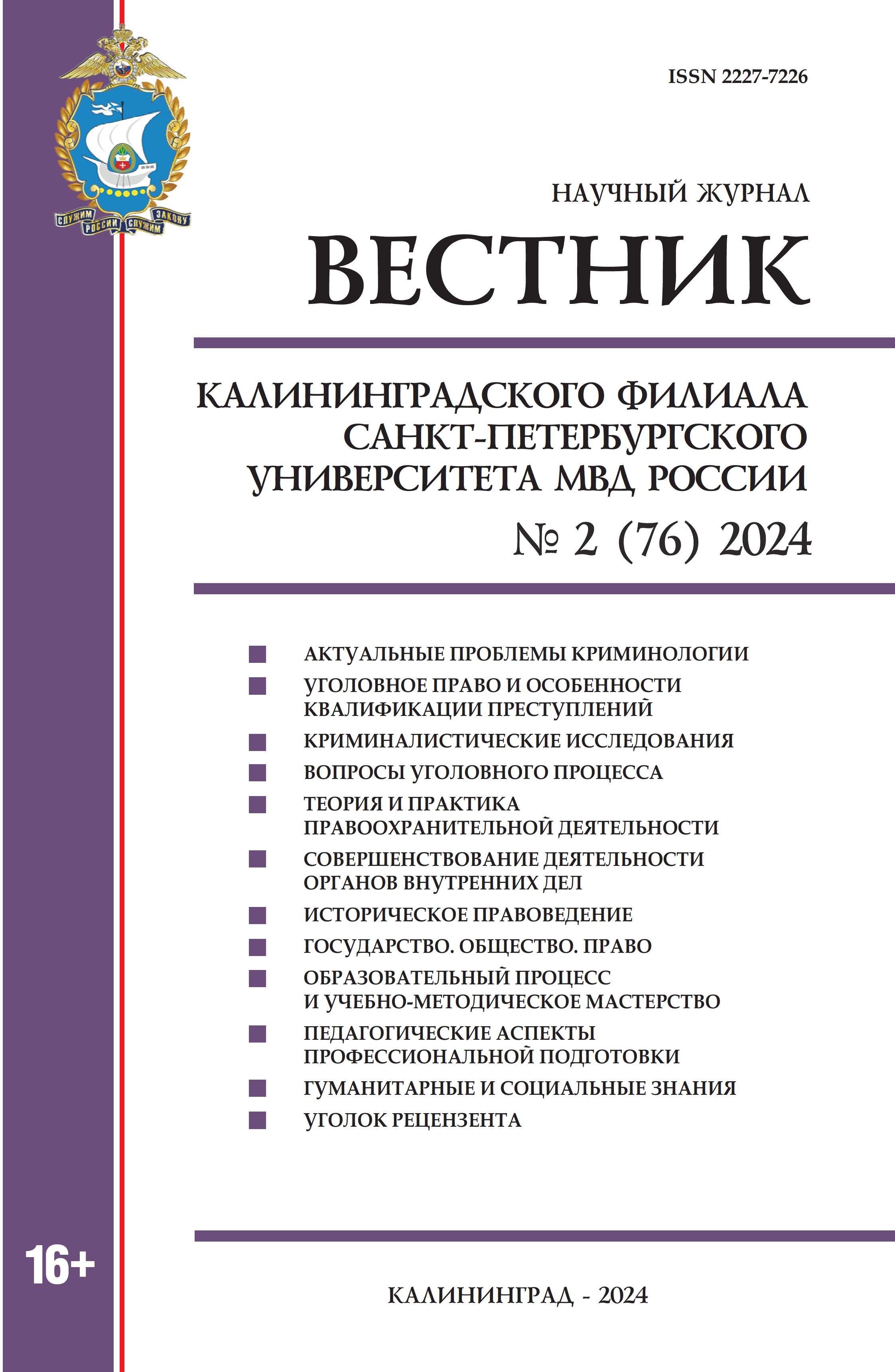from 01.01.2020 until now
Kaliningrad, Kalinigrad, Russian Federation
Introduction. Currently, the urgent need of the Russian labor market is to increase the number of qualified specialists. Including in the field of jurisprudence, which requires workers who can perform professional duties with maximum efficiency in conditions of intensive and innovative economic development, and confidently implement their competencies in order to solve the problems facing the domestic legal system. The qualifications of specialists depend on the quality of their training, since it is within the educational process that professional competencies are formed. Therefore, today great importance is attached to improving the methods of training future lawyers. The article outlines the main results of the study conducted by the authors of the key elements of the methodology of teaching legal disciplines in higher education, which directly affect the quality of education. Methods. The research is based on a complex of general scientific theoretical and empirical methods of cognition, in particular dialectical and inductive methods. To study the components of the teaching methodology of legal disciplines, the analysis method was used. Results. Based on the results of the study, it was concluded that the methodology for teaching legal disciplines is based on a competency-based approach. When determining its content, it is necessary to place emphasis on the practical orientation of training, which contributes to the effective formation of professional competencies. Improving teaching methods should include bringing the methods of presenting educational material in line with the volume of legal knowledge that students master. At the same time, it is necessary to orient students towards a deeper knowledge of the law, and not just to study the laws, to promote in every possible way the development of professional legal thinking in them, which should be the foundation for the formation of the competencies of future lawyers, and to carry out legal education.
Legal education, legal disciplines, higher school, development of competencies, improvement of teaching methods, legal education, practice-oriented training.








